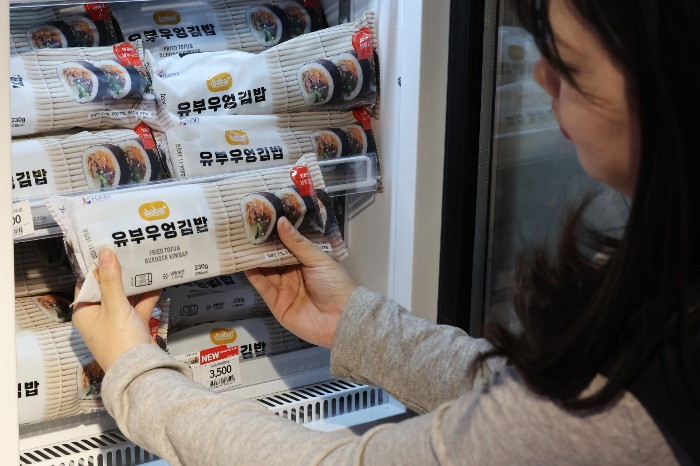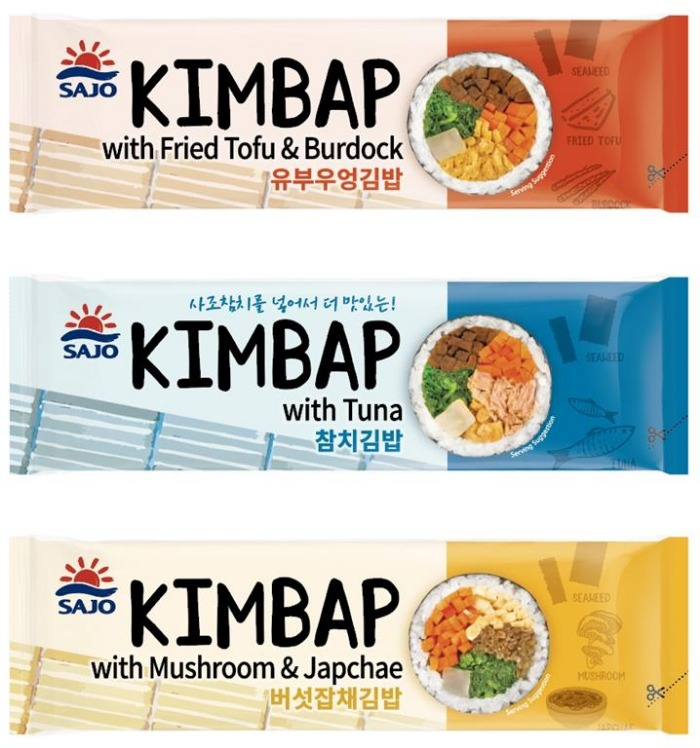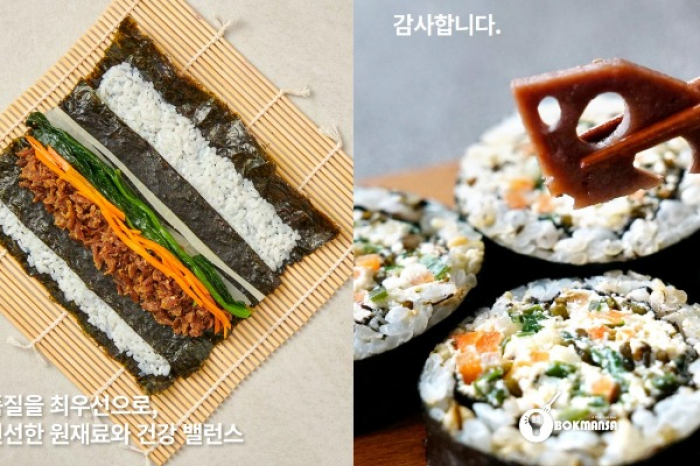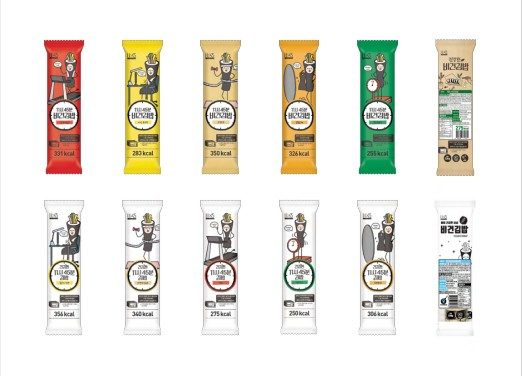Frozen kimbap market emerges as new K-food battlefield
S.Korea’s major canned tuna maker Sajo Daerim has exported 36 tons of its frozen kimbap products to the US
By Jun 14, 2024 (Gmt+09:00)
Samsung steps up AR race with advanced microdisplay for smart glasses


When in S. Korea, it’s a ritual: Foreigners make stops at CU, GS25, 7-Eleven


Maybe Happy Ending: A robot love story that rewrote Broadway playbook


NPS yet to schedule external manager selection; PE firms’ fundraising woes deepen


US auto parts tariffs take effect; Korea avoids heavy hit



South Korean fishery processing and seafood major Sajo Daerim Corp. has forayed into the frozen kimbap market, becoming a new big player in the country’s food industry to throw down the gauntlet in the frozen kimbap export market pioneered by smaller local food companies.
Sajo Daerim announced the launch of its frozen kimbap brand on Friday, adding that it has already shipped 36 tons of its frozen kimbap products, or 155,000 rolls of kimbap, to the US, since April.
It plans to export about 72,000 rolls monthly, said the company, whose mainstay food products are canned tuna and fishcakes.
Sajo Daerim said it makes frozen kimbap rolls with tuna meat and various vegetables, and they come in three types including a vegan one -- fried tofu and burdock kimbap, the company said.
The news comes a little over a month after Korean food giant CJ CheilJedang Corp. rolled out its frozen kimbap products in Australia after its success in Japan about a year ago.

Kimbap, or gimbap, is a seaweed-wrapped Korean rice roll, different from Japanese sushi rolls. The Korean rolls include rice (bap), marinated meat, but mostly beef, a bit of omelet-style egg, carrots, vegetables such as spinach -- and rolled into seaweed, called kim or gim in Korean.
The rice rolls are normally served at room temperature and meant to be eaten the same day after cooking. To most Koreans, the idea of frozen kimbap is very new.
But frozen kimbap has recently become a global sensation after its smashing hit in the US amid social media buzz last year.
And the frozen kimbap’s success story overseas was initially led by small Korean food companies, not big food conglomerates.

Allgot Co.’s frozen kimbap was behind the news about people standing in a long queue in front of the frozen food section at Trader Joe's outlets across the US to get the Korean frozen seaweed-wrapped rice rolls last year.
Allgot is a small Korean food company, the mainstay and sole product of which is frozen kimbap.
After its success in the US, the Korean food company started supplying its frozen kimbap to major supermarket chains on its home turf.
But Allgot was not the first frozen seaweed-wrapped rice roll exporter in Korea.
It was Bokmansa Co., which started shipping frozen kimbap products to other countries in 2020, first to Hong Kong.

This Korean food company now exports its frozen kimbap products to 19 countries, including the US, the UK, Qatar and Indonesia.
As their larger peers at home join in, competition in the frozen kimbap export market, which is at the center of the latest Korean food fad worldwide, is poised to intensify.
CJ CheilJedang, the owner of Bibigo brand, also plans to export its frozen kimbap products to the US.
Welcoming Sajodaerim's advance into the frozen kimbap market, investors gobbled up its shares and its sister companies' shares.
Sajo Daerim stock skyrocketed by a daily limit of 30% to end at 61,600 won ($44.56), while Sajo Seafood Co. and Sajo Industries Co. also both soared 30% to close at 6,090 won and 49,700 won, respectively.
Write to Hyung-Joo Oh at ohj@hankyung.com
Sookyung Seo edited this article.
-
 Korean foodKorean food firms chase sizzling K-food demand with expansion
Korean foodKorean food firms chase sizzling K-food demand with expansionJun 14, 2024 (Gmt+09:00)
3 Min read -
 EconomyIn Korean food prices, everything’s up: Now it’s dried seaweed's turn
EconomyIn Korean food prices, everything’s up: Now it’s dried seaweed's turnApr 18, 2024 (Gmt+09:00)
3 Min read -
 Korean foodCJ's Bibigo Gimbap enters Australian Woolworths stores
Korean foodCJ's Bibigo Gimbap enters Australian Woolworths storesMay 13, 2024 (Gmt+09:00)
1 Min read -
 Korean foodAfter frozen Kimbap craze, here comes Korean street food
Korean foodAfter frozen Kimbap craze, here comes Korean street foodFeb 01, 2024 (Gmt+09:00)
3 Min read -
 Korean foodAllgot’s frozen kimbap to hit Costco shelves in US in H1, 2024
Korean foodAllgot’s frozen kimbap to hit Costco shelves in US in H1, 2024Oct 17, 2023 (Gmt+09:00)
4 Min read


